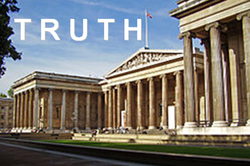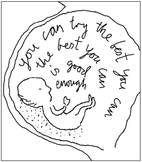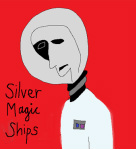
the truth which biography demands is truth in its hardest,
most obdurate form; it is truth as truth is to be found in
the British Museum; it is truth out of which all vapour of
falsehood has been pressed by the weight of research.
This statement highlights the longstanding trust that societies place in museums and their tangible collections. Even today these institutions retain their reputation for “hard facts”. And, like a well researched, scholarly biography, it is from this “virtue in truth” that museums derive their “almost mystic power”.
But “truth” alone is not enough: the book-on-a-wall approach to museum display is undoubtedly full of facts, but that doesn’t prevent it from leading to exhibitions that are “dull” or “unreadable”. Woolf realised that, in order to make something interesting and dramatic, “facts must be manipulated”.
The question is, therefore, how far to carry the fiction or toy with the truth?
It strikes me that this is particularly pertinent today as our museums seek to divest themselves of their reputation for being stuffy and scholarly in favour of “dramatic effect”. Yet museum professionals would be wise to heed Woolf’s advice. She realised that sanctioning fewer facts in exchange for the foregrounding of more palatable fictions runs the risk of “losing both worlds”. Because, if visitors begin to lose faith in museums, their “almost mystic power” will slowly ebb away. In its place we might well be left with apparently more accessible and dramatic exhibitions – but even the most fashionable of museums quickly seems “dull” and out-moded in comparison with other forms of popular entertainment.
And a museum without truths and “hard facts” is nothing more than a second rate visitor attraction.
___
Note
(1) All direct quotations in this post are derived from Woolf’s article, which is reproduced as the final chapter in the fourth volume of her Collected Essays, London, The Hogarth Press, 1967, pp. 229-235.






